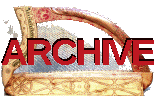

|
Port Gordon is the name of two different tunes.
The tunes are usually listed as compositions of Ruaidhrí Dall Ó Catháin (late 16th c - c.1650),
The first tune has an attribution to Rory Dall in Bowie’s book, where he makes the general claim that all of the John Robertson tunes came to the Lude family via “the famous Rory Daul a celebrated Harper in the Reign of Queen Ann”. There is a family anecdote of Rory Dall visiting Lude in the company of the Duke of Gordon in around 1650.
The second version of Port Gordon is attributed to Rory Dall on the testimony of the Irish harper Arthur O’Neill c.1808, as reported by Edward Bunting.
At first glance the two tunes appear to be quite different, but I think these two versions of Port Gordon are related to each other, and I imagine they may be two different descents in the oral tradition from one original Rory Dall composition of the early 17th century. It is interesting to compare with Port Atholl where we again have two versions of a Rory Dall tune, but the two versions of Port Atholl seem to me to be more different from each other than the two versions of Port Gordon.
William Tytler in 1783 refers to
|
“ ...that species of music, which is now scarcely known; I mean the Port. Almost every great family had a Port that went by the name of the family. Of the few that are still preserved are, Port Lennox, Port Gordon, Port Seton, and Port Athole, which are all of them excellent in their kind. The Port is not of the martial strain of the march, as some have conjectured; those above named being all in the plaintive strain, and modulated for the harp. „ | |
Many settings of both versions set the tune in F. I think that this may be an example of a genuine F-mode harp tune, i.e. using the 7th of the normal harp scale as the home note for the tune, which gives it a strangely pungent sound.
The earliest appearance of the first ‘Port Gordon’ tune is in the Balcarres lute manuscript, written in Fife, Scotland, around 1700.
f24r / p.47 / no.81 Port Gordon by Mr Beck

My transcription from the Balcarres tablature
I would say that this version, arranged for lute by Mr. Beck, is fairly baroque in its harmony and shape.
A much more interesting version is in John Bowie’s collection, published 1789:

Bowie tells us that this setting originates with the harp playing of John Robertson of Lude (d. c.1730) who owned and played the Queen Mary harp and the Lamont harp. I would consider the setting here to be a resonable sketch of a harp setting, and though most of the bass is obviously Bowie's new composition for harpsichord, some fragments of alternating treble and bass seem plausible fragments of Gaelic harp idiom:
One other source contains a setting of this version; the 1816 MacLean-Clephane ms. Here it is titled “Port 2nd” as part of a set of untitled ports.

My transcription from the MacLean-Clephane manuscript
The earliest setting of the second version is in J&W Neal’s Collection of the most celebrated Scots tunes, c.1724:
![]()
James Oswald, Caledonian Pocket Companion, book 8, circa 1750:

Daniel Dow prints a version in 1776:

Bunting’s field notebooks contain two different settings of the tune, on facing pages of ms33(1), f13v-14r. The one on f14r is titled “Quin’s first part” presumably referring to his informant, Patrick Quin (c. 1745 - early 19th century) These notations probably date to about 1800.
![]()
My transcription from Bunting’s field notebook
Bunting ms33(1), f13v has a different setting, titled “Ballyhaunis made by a lay friar”. Donal O’Sullivan (ref. Donal O’Sullivan, The Bunting Collection of Irish Folk Music and Songs, Part VI, Journal of the Irish Folk Song Society vols XXVIII-XXIX, December 1932, (1939), p.41-42) says the title refers to an Irish song “Máire Bhéil Áth’ h-Amhnais” which is said to have been sung to the tune.
![]()
My transcription from Bunting’s field notebook
Here’s Bunting’s printed version, from 1809; in his annotated copy he attributes it to Hempson.
“Purth Clarsearch / Purth Clarsearch - a lesson for the harp”

John Murphy, Collection of Irish Airs and Jigs c.1801 has a version different from Bunting’s 1809, but set in the same key (B flat) and with similar bass motifs:

O’Farrell’s Pocket Companion for the Irish or Union Pipes vol 1 c.1804 includes our tune attributed to Carolan:
“Port Gordon by Carolan. Irish”

The 1816 MacLean-Clephane ms mentioned above includes this version titled “Port Gordon” as part of a set of tunes said to be from the playing of “O’Kane”. As with many of the tunes in this section of the manuscript, it seems to be attributed to Carolan:
“Port Gordon / Scottish Highland Origi[nal] / adapted to the harp by Ca[rolan]”

My transcription from the MacLean-Clephane manuscript